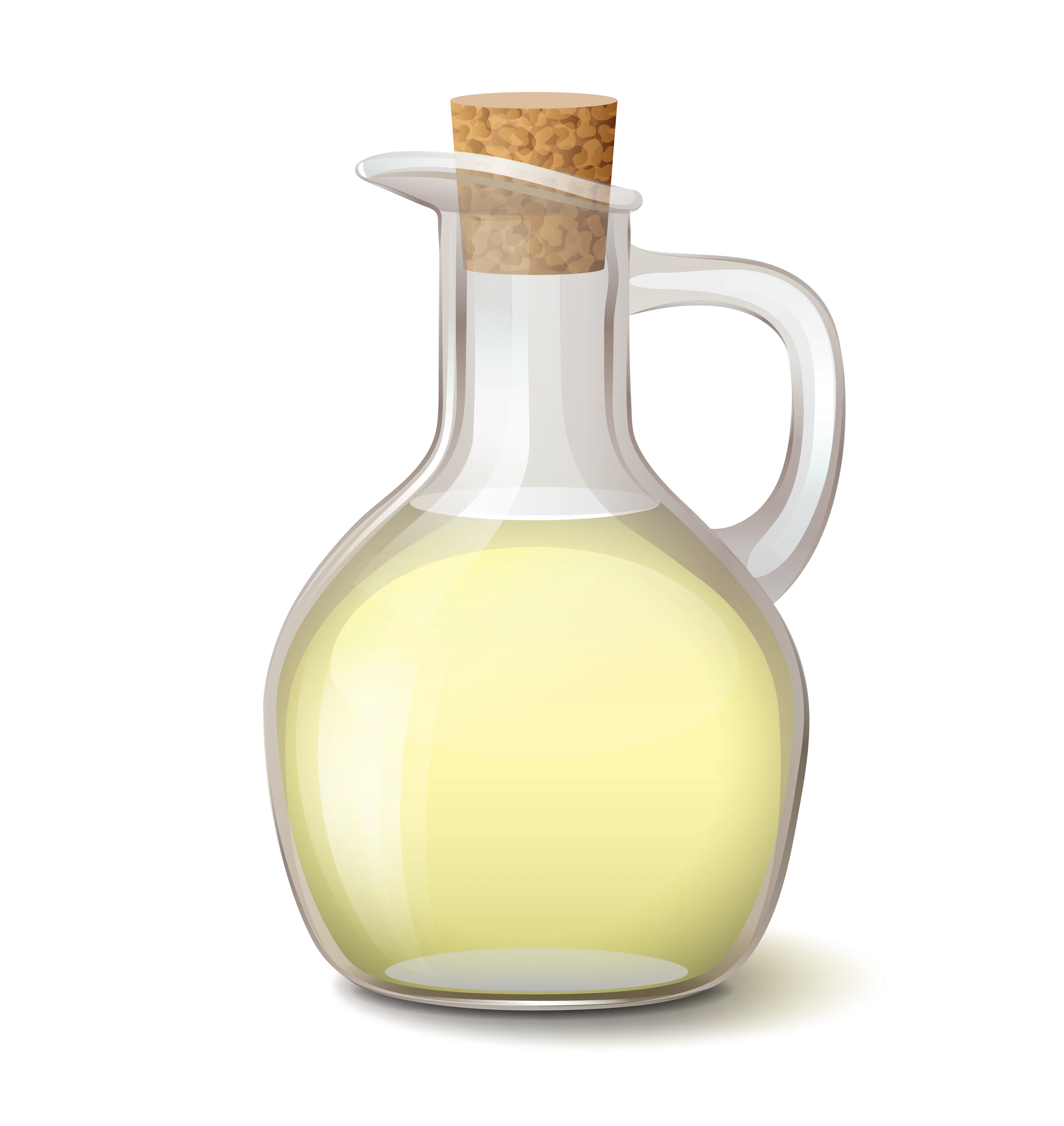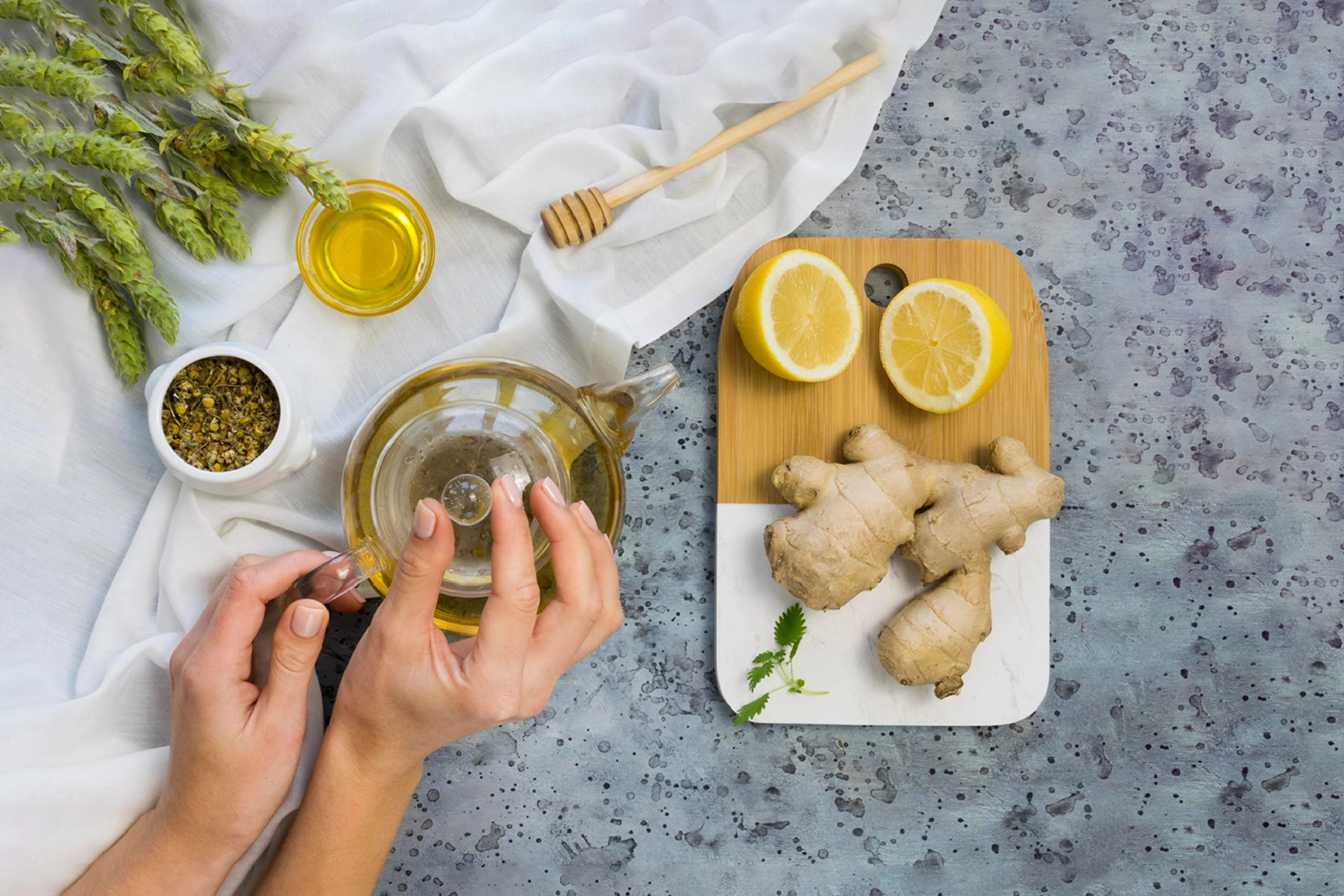Ayurveda | 8 min read
Coconut Oil: Benefits For Skin and Hair, Nutritional Value
Medically reviewed by
Table of Content
Key Takeaways
- Coconut oil consumption can help to prevent heart disease and several chronic conditions
- It has several advantages for hair because of its antibacterial and antimicrobial qualities
- Coconut oil improves your skin by maintaining moisture and minimizing dryness
Coconut oil is a versatile product for both good health and beauty. Right from its usage in cooking to moisturizing skin, coconut oil finds a place in every home. Whether maintaining good health or improving your hair growth and texture, coconut oil benefits are too many to count!
Extracted from coconuts, it contains many natural properties that are essential for your hair and skin. The fat content in coconut oil is 100%, though it does not have high amounts of minerals and vitamins. Coconut oil also contains 47% of lauric fatty acids, which possess antimicrobial properties. As per studies, the benefits of eating coconut oil include protection against heart diseases and treating various chronic health ailments [1]. However, it is better to use a controlled quantity of this oil in your food due to its high-fat content.
Nutritional Value of Coconut Oil
One tablespoon of coconut oil includes the following nutrients:
- 0 g of protein and 121 calories
- 13.5 g of fat, 11.2 g of which is saturated
- 0 mg of cholesterol
- Vitamin E is present in coconut oil, but no fibre or other vitamins or minerals are present
To know more about the amazing benefits of coconut oil, read on.

Coconut Oil Benefits
Blood sugar control
According to results of animal research conducted in 2009, MCTs found in coconut oil may help maintain insulin sensitivity. The analysis also cited 29 studies' findings that MCT oil, not coconut oil, had distinct positive health impacts.
Other research, nevertheless, did not provide the same findings. However, this research on micropigs examined an excessively caloric, high-fat diet that also contained hydrogenated lipids and high fructose.
Stress reduction
Antioxidant properties may exist in virgin coconut oil. It seems to lessen the stress brought on by exercise and persistent cold while researching mice. The use of virgin coconut oil in treating some forms of depression is thought possible.
Lustrous hair
To add lustre and safeguard against damage, some individuals use coconut oil for their hair. It could enter the scalp more effectively than mineral oils.
However, the condition of the hair of those who used coconut oil and those who did not was the same, according to research on individuals with comparable hair types.
Skin health
According to a 2017 study, applying coconut extract to human skin may improve its function as a protective barrier and have an anti-inflammatory impact.
Although they might not apply to nutrition, these discoveries may have medical ramifications.
Asthma symptom reduction
Coconut oil inhalation has been shown to benefit rabbits with asthma problems.
However, no human studies have been conducted. Thus, it is not advised for individuals to inhale coconut oil.
Enhancing satiety
Some claim that coconut oil makes people feel more satisfied after eating, which prevents overeating.
However, one study that compared MCT oil to coconut oil found that MCT oil, not coconut oil, has an impact on satiety.
Oral hygiene
The significance of oil pulling for tooth health is covered in a 2017 review. A common oral therapy is oil pulling. It includes swishing an oil throughout the oral cavity, much like regular mouthwash.
According to research, gargling with coconut oil can reduce gingivitis, prevent cavities, and alter the bacterial balance in the mouth.

Coconut Oil Benefits For Hair
Using coconut oil for hair provides many benefits owing to its antibacterial and antimicrobial properties. It forms a barrier and blocks all kinds of irritants from causing damage to your scalp. The lauric acid present in coconut oil acts as a moisturizer. It prevents hair breakage or frizzy ends, making coconut oil for hair growth the most suitable, natural product you could use! This fatty acid works by binding with hair protein, thereby protecting it right from root to tip. Using coconut oil for hair loss is also effective, and this helps increase the volume of your hair with regular use.
Oiling your hair regularly makes it strong and also prevents moisture loss from your scalp. The hydrophobic property of coconut oil prevents your hair from drying out. This explains the importance of oil for hair growth. Since coconut oil penetrates your hair shaft, it prevents harmful substances like pollutants from affecting your hair. As per research, doing a coconut oil hair treatment is effective in treating dandruff and an itchy scalp [2].
Additional read: Home Remedies to Avoid Hair FallCoconut Oil Benefits For Skin
Coconut oil benefits your skin by reducing its dryness and retaining moisture. The presence of medium-chain fatty acids is what helps in the hydration of your skin. Applying coconut oil enhances skin texture by making it soft and smooth. Packed with phytonutrients and antioxidants, coconut oil for the skin helps fight against any environmental stressors, which can cause visible aging problems.
If you face any skin irritation or redness, make coconut oil the go-to solution for instant care!
Use it as part of a DIY skincare routine by mixing it with sugar or sea salt and apply this paste to your skin. It is a wonderful exfoliant and removes dead skin cells from the skin.
Coconut Oil Health Benefits
Coconut oil is good for health; hence, consuming it regularly may help in burning fat. Studies reveal the efficiency of medium-chain fatty acids, present in coconut oil, in helping burn calories [3]. The lauric acid present in coconut oil forms monolaurin when you ingest coconut oil. This, along with lauric acid, helps eliminate harmful pathogens such as viruses, bacteria, and fungi from your body. Medium-chain fatty acids can help in reducing your hunger pangs as well [4].
Coconut Oil Uses
Pick extra virgin coconut oil when buying coconut oil. The most advantageous kind of coconut oil is this one.
To acquire pure coconut oil, use virgin, wet-milled, unprocessed, organic coconut oil. Similar to other meals, refined versions are less healthy and lose important elements.
Baking and Cooking
Coconut oil may be added to smoothies and used in baking and cooking. It's the preferred cooking oil since unrefined, pure, organic coconut oil offers a pleasant coconut taste without having the negative health effects that other hydrogenated cooking oils frequently have.
Additionally, it's quicker to increase energy when added to food or smoothies and easier to digest than other oils. You may use it in your meal in the following ways:
- Frying vegetables and meats
- To give your coffee a creamier flavour
- Making your smoothie more nutrient-dense
- Substituting healthy fats for those in baked goods
Hair and Skin Wellness
It can be used as a carrier oil for essential oils or mixes, or you can just apply it topically straight to your skin.
After a shower, rubbing it into your skin is extremely useful. It contains antibacterial qualities that improve the health of skin and hair, in addition to working as an excellent moisturizer.
It can be applied to your skin and hair in the following ways:
- As a natural moisturizer for the skin
- Preventing premature ageing
- Making an all-natural wound salve
- Making a cream that is antifungal
- Making a Homemade Hair Conditioner
- Treatment for dandruff
- Hair detangling
Oral and Dental Health
It may be used for oil pulling, an Ayurvedic technique that helps cleanse the mouth, eliminate plaque and bacteria, and improve breath. One spoonful of coconut oil should be gargled for 10 to 20 minutes before being discarded.
Homemade Natural Cure Recipes
Due to its antibacterial qualities, coconut oil is a fantastic addition to homemade natural medicine recipes that are used to treat infections and strengthen the immune system. The following are a few recipes that require coconut oil:
- Lip balm
- Made-at-home toothpaste
- Organic deodorant
- Cream for shaving
- A massage oil
A cleanser for the Home
Natural dust suppressants, laundry detergent, furniture polish, and handmade hand soap may all be prepared using coconut oil. It eliminates germs and fungi that could form in your Home while also keeping surfaces sparkling.
How to choose and use the best coconut oil?
There is nothing equivalent to virgin coconut oil when choosing the best coconut oil for hair and skin. You can opt for extra virgin, virgin, or unrefined oil to suit your requirements. The skin benefits of virgin coconut oil are amazing as it is extracted from fresh coconut milk, unlike regular coconut oil extracted from dried coconut kernel. As a result, virgin coconut oil contains more antioxidants than regular coconut oil.
Apart from adding luster to your hair, virgin coconut oil prevents hair from greying as well. You can use it for massaging your skin as it is packed with antioxidants. Apply it overnight on your face for increasing skin hydration and lightening any dark patches on your skin. You may rub coconut oil on your hair before or after a shampoo wash to prevent hair dryness. Applying warm coconut oil on hair can relieve you of dandruff and other scalp issues too.
Additional read: Types of Skin RashesNow that you know how coconut oil benefits your hair and skin, it is easy to guess why it has been so popular since time immemorial. Be it protecting your hair from sun damage, hair loss, or dandruff, regular coconut oil results in big gains. However, if you face severe hair loss or skin problems, connect with dermatologists on Bajaj Finserv Health. Book an in-person or online doctor consultation and get rid of your hair fall and skin problems.
References
- https://www.ncbi.nlm.nih.gov/pmc/articles/PMC5044790/
- https://www.ncbi.nlm.nih.gov/pmc/articles/PMC8012655/
- https://pubmed.ncbi.nlm.nih.gov/25636220/
- https://pubmed.ncbi.nlm.nih.gov/9701177/
Disclaimer
Please note that this article is solely meant for informational purposes and Bajaj Finserv Health Limited (“BFHL”) does not shoulder any responsibility of the views/advice/information expressed/given by the writer/reviewer/originator. This article should not be considered as a substitute for any medical advice, diagnosis or treatment. Always consult with your trusted physician/qualified healthcare professional to evaluate your medical condition. The above article has been reviewed by a qualified doctor and BFHL is not responsible for any damages for any information or services provided by any third party.





